We have an epidemic of generic, useless career advice circulating theinternet.
It kind of reminds me of art class in 4th grade. Which I almost failed.
I remember the teacher told us to draw a sunset for a final project.
We had a bunch of drawing books that were supposed to teach us how to draw sunsets. I tried to follow along with them.
Have you ever seen some of those instructional drawing books?
They look something like this:
Ugh. I had to redo that drawing like 4 or 5 times.
So I can’t help but to vomit uncontrollably when I see articles with clickbait headlines and this is one of the tips:
Step 1: Decide that you’re going to deliver value.
Step 2: ???
Step 3: Profit!
One of the biggest problems with this generic advice is that no one tells ushow to actually execute.
We’re told to do things we know we should be doing, but we’re not given a roadmap for how to do it.
As a result, these articles probably end up helping nobody.
The titles are optimized for social shares, but that’s not a good thing either.
Every good entrepreneur knows that if the product sucks but the marketing is good, that’s just going to spread the word about how much the product sucks.
So today, I’m going to do something a bit different.
I’m going to give you the EXACT roadmap that I took from sending out my resume a million times cluelessly to landing interviews at top tier companies like Quora, and getting positions created for me at bigger companies like Shutterstock.
Step by Step.
Let’s dig in.
First, I spammed out a bunch of resumes
Most people apply for jobs in the worst way possible.
They go on job boards like CareerBuilder to find jobs that look interesting, they say things like “I need to update my resume”, they send it out into the ether, and then keep refreshing their inbox to see if they got an interview.
A great shortcut to coming off as a total commodity.
But I’ve been guilty of this too.
I started off my job search late last year by sending out resumes to a ton of different companies online.
I was stressed out every single day, checking my inbox to see if any companies got back to me with good news.
And here’s how it worked out for me:
It sucked. Horribly.
I kept doing it again and again, thinking maybe this time I’ll get lucky.
But eventually I hit a breaking point.
The truth is, when the hiring manager has a million resumes to go through, the way to stand out is not by writing a better resume. It’s by going beyond the resume and proving that you can solve their actual problems.
So that’s what I decided to do.
Step 1: I narrowed in on just a few jobs
Instead of spamming resumes to a bunch of companies I didn’t really care about, I decided to pick a few companies I was interested in, and go all in.
I wanted to do biz dev or product development. So I picked a few companies that were hiring for roles I liked:
- Product Design at Quora
- UX at Shutterstock
- Business Development at Kiip
Even though I didn’t fit the job description exactly for any of these roles (i.e. for Quora I lacked some of the skills, for Kiip I lacked some years of experience, etc), I knew I could do the job anyway.
So I still went for it.
Step 2: I outlined what I’d be doing on the job
Before I could come up with a project to prove that I could do the job, I needed to know exactly what I’d be doing day to day.
I made a note of tasks I could do right away. For example, I could “form partnerships with businesses” for Kiip without being at the company, but I wouldn’t be able to “analyze churn data”” or something else that requires internal information.
(Bonus: If you can’t “recreate” the job your applying for on your own, there are plenty of other ways to prove you can add ROI. I share these with myprivate email list).
Step 3: The Pre-Interview Project
This is where the magic happened.
Because I knew the type of projects I’d be doing day-to-day in the jobs I was applying to, I could actually DO them ahead of time to prove that I’d be a good fit.
Since I was applying for a business development role at Kiip, I decided to pitch a few companies on forming partnerships with them. Another example of this is what Ina Herlihy did to get a job at Zumper.
For product design / UX roles at Quora and Shutterstock, I ran a usability test on the product, wrote a document about my process, and mocked up new design suggestions based on my results. (Here’s an in depth exampe of what my friend Francine Lee did for Dropbox, which is pretty similar to what I did).
For small companies (like Quora or Kiip), I used this email script to send my project in to the director of the department I was appling for. You can customize this for any entrepreneurial company you’re applying to:
Hi [name]
I noticed you’re hiring a [position], and I’m interested. I thought it would be helpful for me to [insert a good description of your pre-interview project] to show my interest and the value I could bring to .
[Present the project here — if it’s a writeup (i.e. a design suggestion) then a link or image would do. If you pitched businesses for partnerships, ask if the person you’re emailing would like to be introduced, etc.]
Quick background on me: [insert a quick 2 — sentence summary of your background as it relates to this job]
Thanks so much for your time — hope to hear from you regarding next steps!
Raghav
For Shutterstock, I sent in my project only after I’d gotten an interview.
Because it’s a larger company, I wasn’t sure whether everyone in same department would know each other (so I didn’t know whether my doc would get shared with the right person).
So I waited until I got an interview, and then sent my project to all my interviewers before my interview:
Here’s a more general email script you can use if you’re applying to work at a larger company:
Hi [name],
[Employee name] mentioned that I’d be chatting with you on [date] as part of my interview for the [position] at
[Present the project here (insert link, ask if they’d like to be introduced to a potential partner, etc)]
Just thought I’d sent it over now in case you’d like to chat about it during the interview (if you think it would be appropriate, of course).
Best,
[your name]
This is when things finally started to change.
After I sent my project in to Quora’s head of product design, he emailed me back in a couple of days to set up an interview.
Shutterstock not only gave me an offer, they created a position for me in their product management team.
Instead of spamming out a hundred resumes just to get a few interviews (if any), I was able to send out a just a few applications and crush them all.
Why qualifications don’t matter as much as you think
Have you ever asked a guy or a girl what they look for in a partner?
They say things like “smart, funny, etc” but almost always follow it up with physical criteria, like “tall, attractive, and fit”.
But when it comes time to actually settle down, notice how they don’t end up choosing someone with those exact characteristics.
Instead, they choose someone who gave them what they really valued. The criteria is just a decent way of screening out all the weirdos.
Same thing when it comes to applying for your dream job.
Hiring managers get TONS of applications for even a single position, so they need some criteria to screen out the people who might not know what they’re doing. That’s why so many jobs “require” more years of experience than you’ll ever need to actually do a good job.

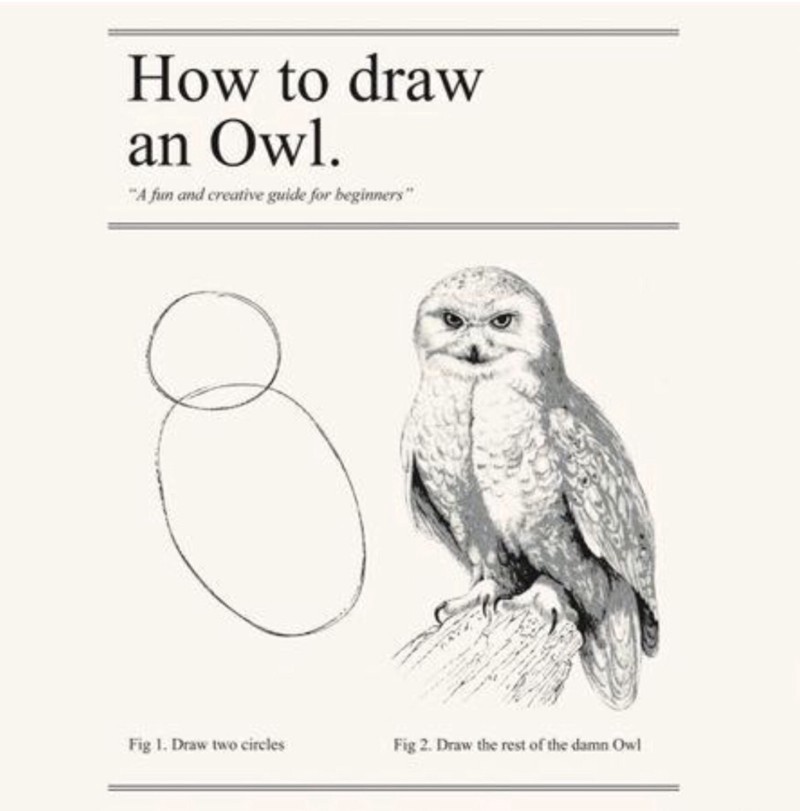
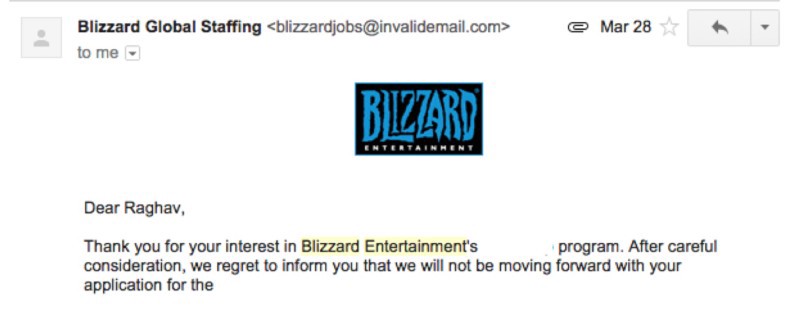
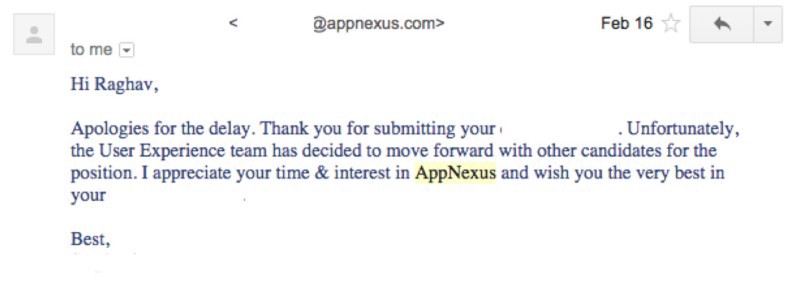
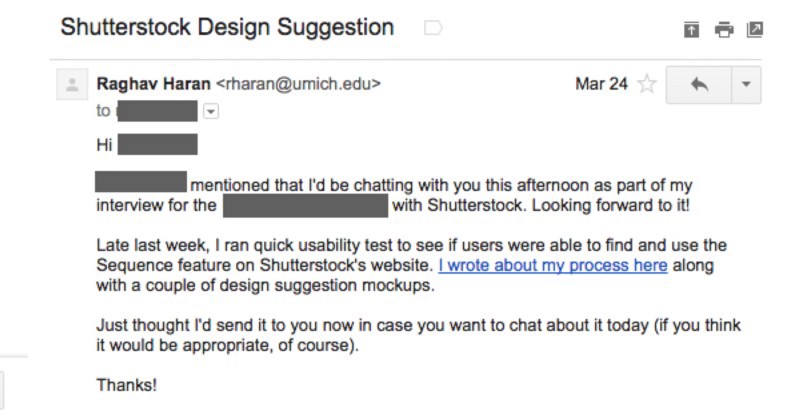
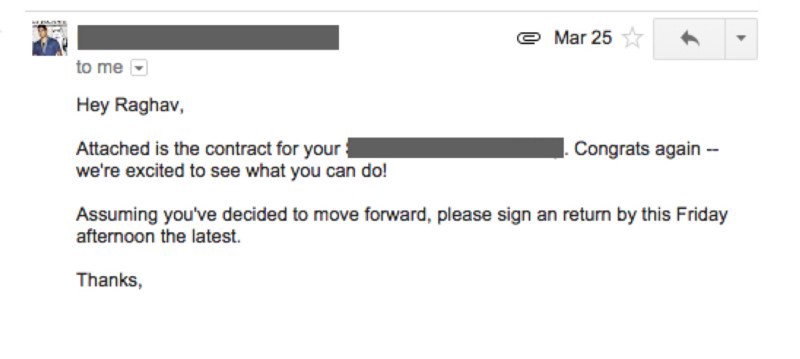
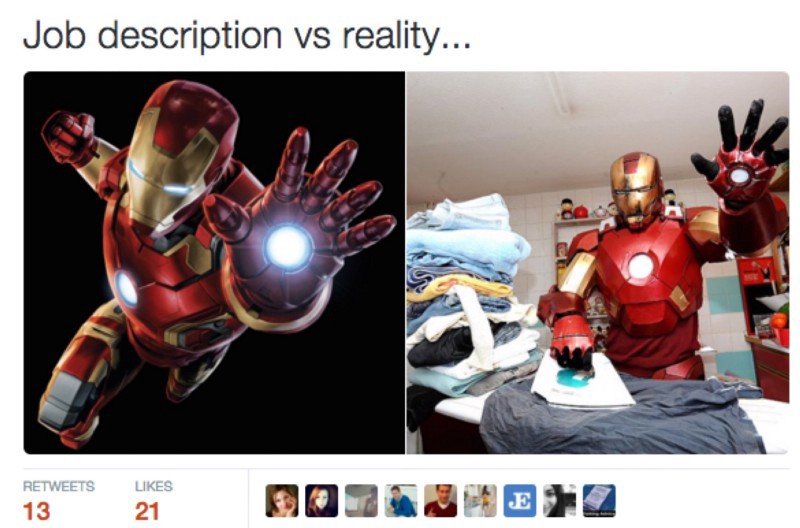
RH says
I’m only commenting to write that I scared my cat and my partner by laughing uncontrollably at the How to Draw An Owl picture. Oh, and very good advice by the way! I’ve just subscribed to your private email list and look forward to getting awesome content from you.
Kali Pillay says
Hi Raghav, you have some good inspirational points on here! But the reality is that most people just won’t take the effort to create an impact. It’s easier to be lazy about it and spam job boards. I’ve got a story on the end end of this spectrum on my site, I read your post and just had to link to it. Thanks!
Very true. Thanks for sharing it!
Greer Nicholson says
You give very good advice. This makes sense and I am now know what I need to do. Thank you so much. I am grateful to you.
Mina says
I am in the very late stages of my career - I am told disruption comes from youth -any thoughts on how I market my age and experience . I need to find a new job that utilises my relationship management skills.